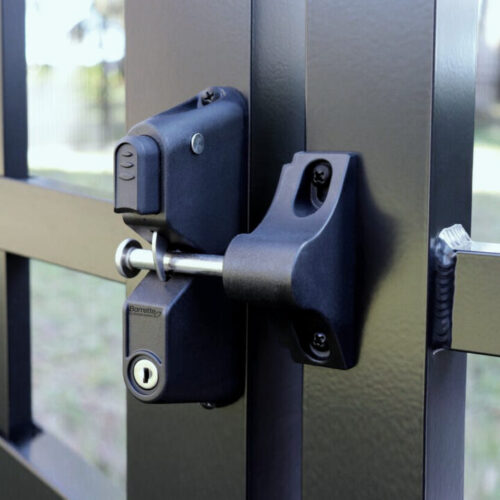When it comes to securing your property and ensuring the safety of your loved ones, one often overlooked but crucial element is your fence gate. Many homeowners invest in sturdy fences to maintain privacy and delineate their boundaries, but they often forget about the importance of a reliable gate latch. In this article, we’ll explore the significance of using a standard post latch and how it enhances your safety by keeping unwanted visitors out.
The Power of a Standard Post Latch
A standard post latch is a simple yet effective device used to secure your fence gate. It consists of a latch mechanism that connects to the gatepost and a catch that attaches to the gate itself. When properly installed, it allows you to easily open and close your gate while providing a dependable locking mechanism.
Safety First: Keeping Unwanted Visitors Out
One of the primary reasons for having a secure fence gate is to prevent unauthorized access to your property. Whether you live in a bustling urban area or a serene suburban neighborhood, the safety of your family and possessions should always be a top priority. A locked gate serves as a formidable deterrent to potential intruders, making it significantly more difficult for them to gain access.
Imagine the peace of mind that comes with knowing your children can play safely in your backyard without the worry of strangers wandering in. Additionally, a locked gate can safeguard your home from unwanted solicitors or salespeople. It’s your first line of defense against unexpected visitors and ensures that your privacy remains intact.
In conclusion, a standard post latch may seem like a minor detail in your overall fence setup, but its role in securing your property cannot be underestimated. By investing in a reliable latch and using it to keep your fence gate locked, you are taking a proactive step towards enhancing your safety and keeping unwanted visitors at bay. Remember, when it comes to the security of your home and loved ones, every detail counts, and a secure gate is an essential part of that equation.
Make sure to regularly inspect your latch for wear and tear, and replace it if necessary, to maintain the security of your property. Your peace of mind and the safety of your loved ones depend on it.
